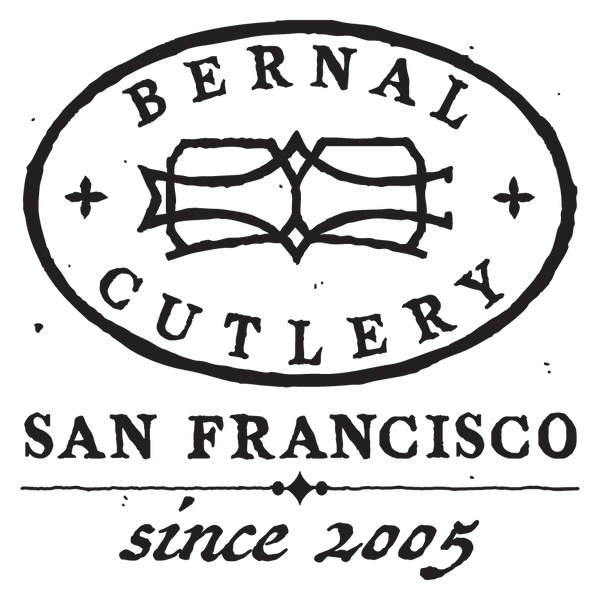-
Language
-
Currency
-
NEW
- All New Products
- New Kitchen Knives
- New Kitchen Tools
- Latest Vintage
- New Pocket & Outdoor
- New Pantry
-
What's in my Basket Series
- Nite Yun - Lunette
- Scott & Frost Clark - Dad's Luncheonette, Chef & Author
- Angela Wilson - Avedano's
- Susan Kim - Eat Doshi
- Seth Stowaway - Osito
- Dr. Harold McGee - Author
- Ryo Sakai -Kuma Sushi
- Ian McNemar - Woodworker, Instructor
- Anna Voloshyna - Author
- Jorge Martinex Lillard - Lolo´
- Chris Yang - Piglet & Co
- Griffin Wilson - @cabincorn
- Gabe Rudolph - Gestura Utensils
- Molly DeCoudreaux - Food Photographer
- Geoff Davis - Burdell Soul Food
- Jen and Wes - @crazythickasians
- Josh Donald - Bernal Cutlery
- Kelly Kozak - Bernal Cutlery
- Jessica Sullivan - Poppy SF
- Sylvan Mishima Brackett - Rintaro
- Michael Myers - Film Character
- Ali Hooke - @alihooke
- Bruce Hill - The Chef's Press
- Dylan Carasco - Butcher's Guide
- Spencer Horowitz - Hadeem
-
Japanese Knives
- Ashi Hamono
- Gihei Knives
- Godo Tadaharu
- Hatsukokoro
- Hitohira
- Iwasaki Kamisori
- Kaji-Bei
- Kamo Shiro
- Kanehide
- Konosuke
- MAC Knife
- Masakane
- Makoto Tadokoro Marushin
- Morihei
- Myojin Riki Sesakusho
- Nakagawa Hamono
- Naozumi
- Nigara Hamono
- Sakai Kikumori
- Shigefusa
- Tagai
- Takada no Hamono
- Tanabe Tatara
- Tosa
- Tsukasa Hinoura
- Yoshikane
- Yoshikazu Tanaka
- Wakui
-
Global Knives
- Allday Goods (GBR)
- Alma Knife Co. (USA)
- Astral Works (USA)
- Au Sabot (FRA)
- AZ Knives (ARG)
- Benchmade Cutlery (USA)
- Bernal Cutlery (USA)
- Blenheim Forge (GBR)
- Chazeau Honoré (FRA)
- Dexter Russell (USA)
- Eichenlaub Tableware (DEU)
- Florentine Kitchen Knives (ESP)
- Fontenille Pataud (FRA)
- Friedr Herder (DEU)
- J Adams (GBR)
- John Nowill & Son (GBR)
- K Sabatier (FRA)
- Pallares (ESP)
- Roland Lannier (FRA)
- Rolin Knives (USA)
- Silverthorn (USA)
- Steelport Knife Co. (USA)
- Windmühlenmesser (DEU)
- Zirh (TUR)
-
Pocket | Outdoor
- A Wright & Son (GBR)
- Andersson & Copra (SWE)
- Au Sabot Folders (FRA)
- Benchmade (USA)
- Buck Knives (USA)
- David Margrita (FRA)
- Friedr Herder (DEU)
- Fontenille Pataud (FRA)
- Helle (NOR)
- Higonokami
- Hults Bruk Axes (SWE)
- Ibberson (GBR)
- Joseph Rogers & Sons (GBR)
- Kalthoff Axes (SWE)
- MOKI Knives (JPN)
- Morakniv (SWE)
- Opinel (FRA)
- Pallares (ESP)
- Tactile Knife Company (USA)
- Wood Tools (GBR)
- Vintage & New Vintage
-
Styles
- Bernal Cutlery Collaborations
- Knife Sets
- Carving Forks | Knives | Sets
- Japanese Kitchen Knives
- Western Kitchen Knives
- Chinese Style Cleavers
- Bread
- Butchery
- Cheese | Charcuterie
- Pocket | Folding
- Woodworking | Hobby | Craft
- Kamisori Razors
- Table | Steak
- Fixed Blades | Axes | Outdoor Tools
- Scissors | Shears | Snips
- Left Handed
- The Vault
- Vintage
- Sharpening
- Kitchen | Cookware
- Tableware | Service
- Pantry
- Accessories
- Deals
- Gift Cards
- INFO
or
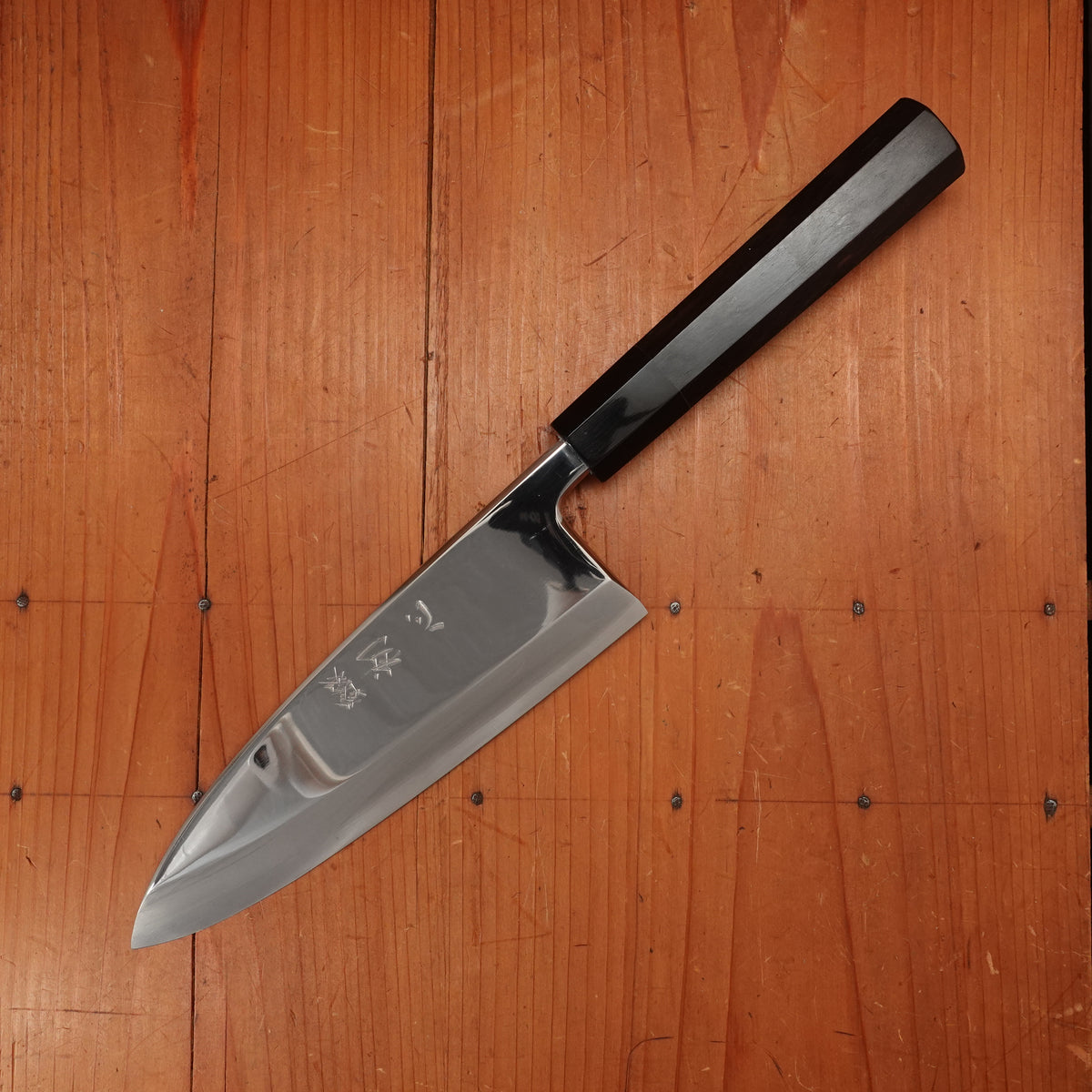
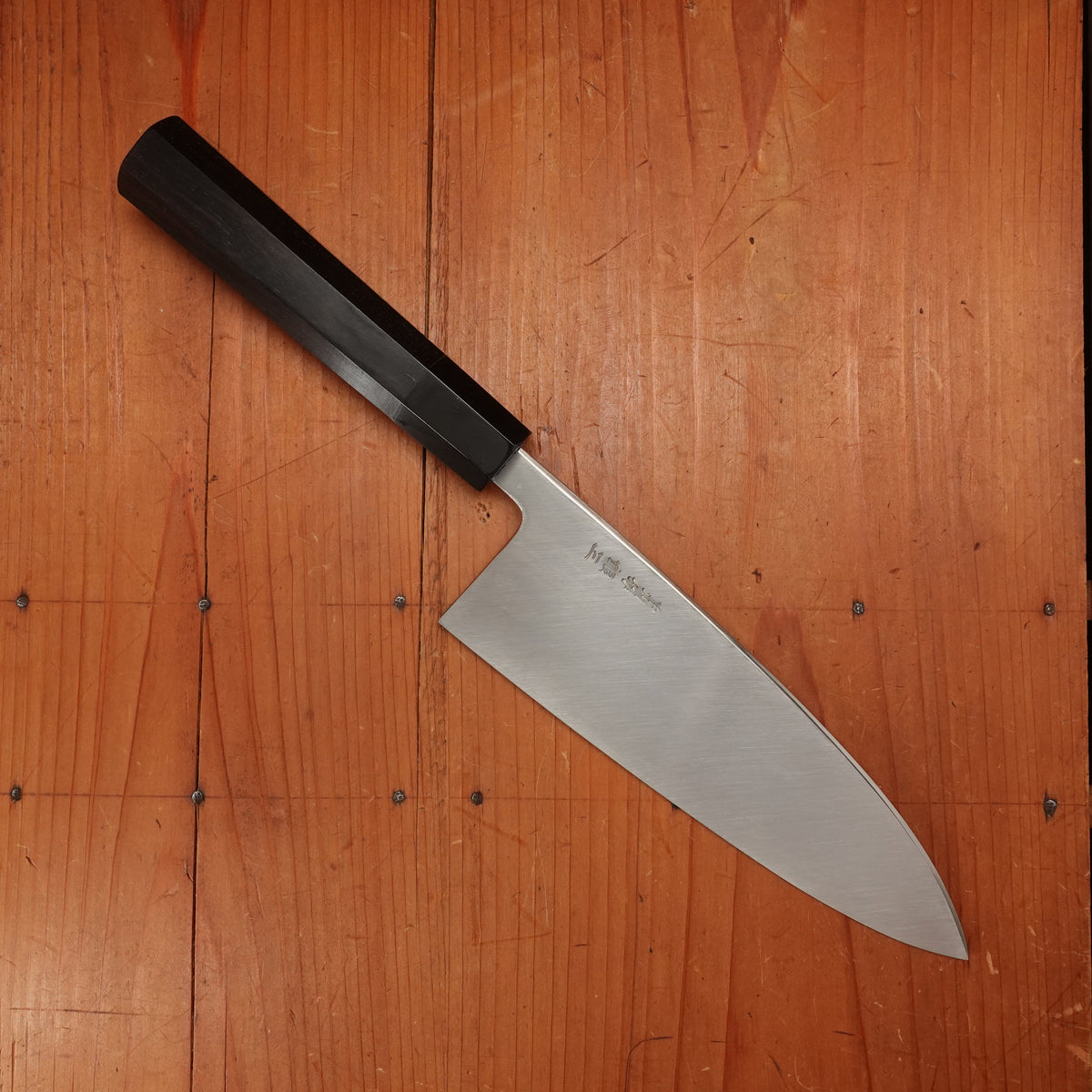
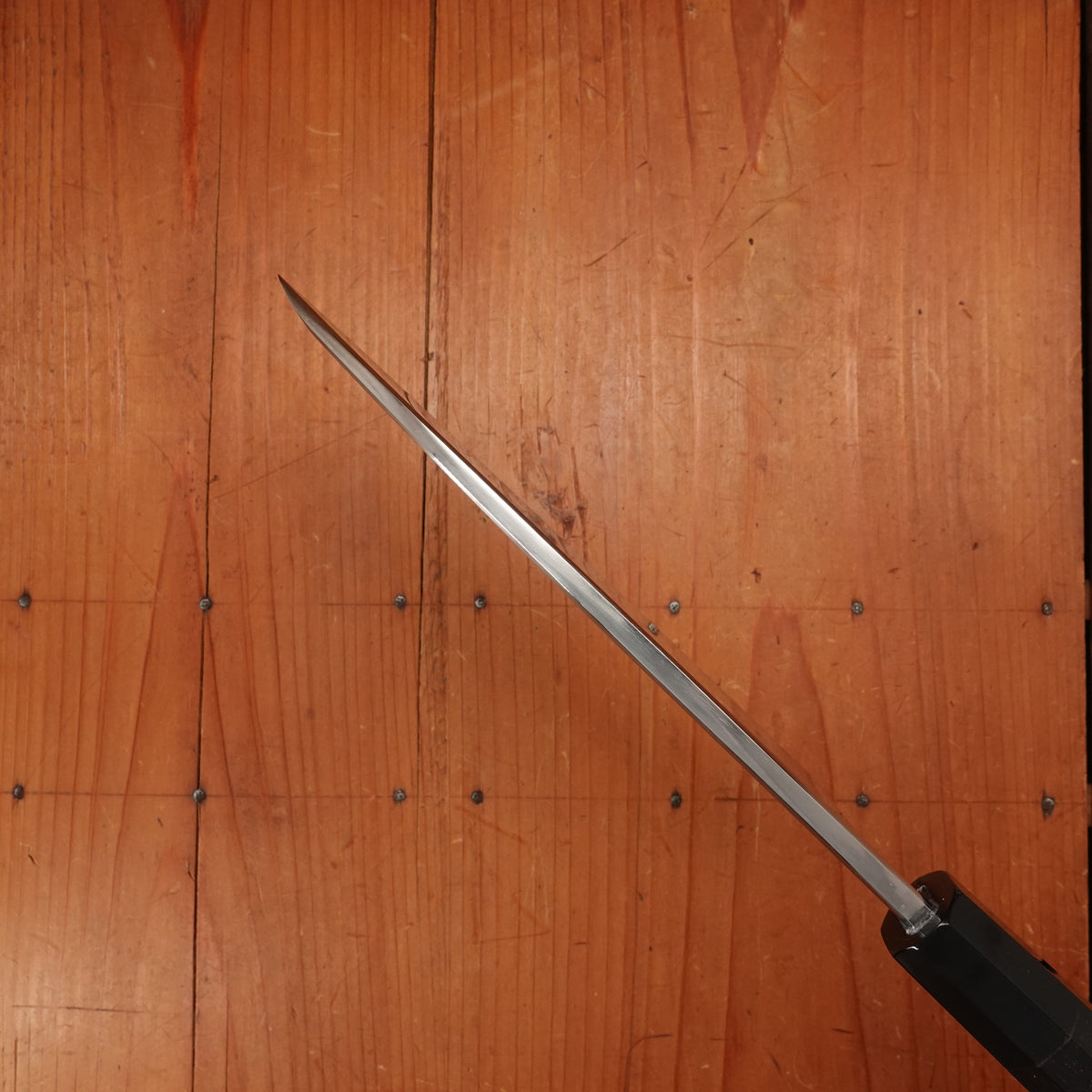
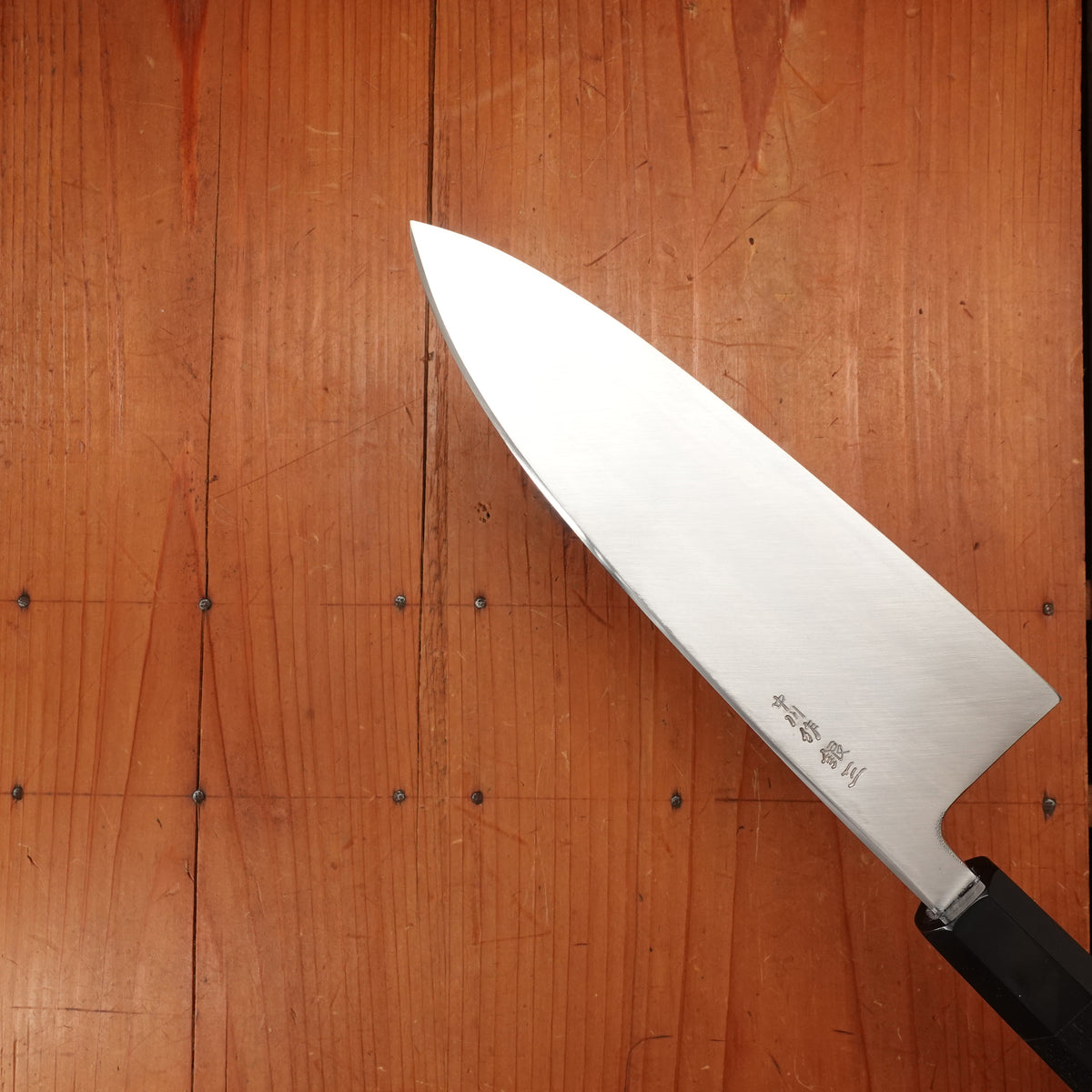
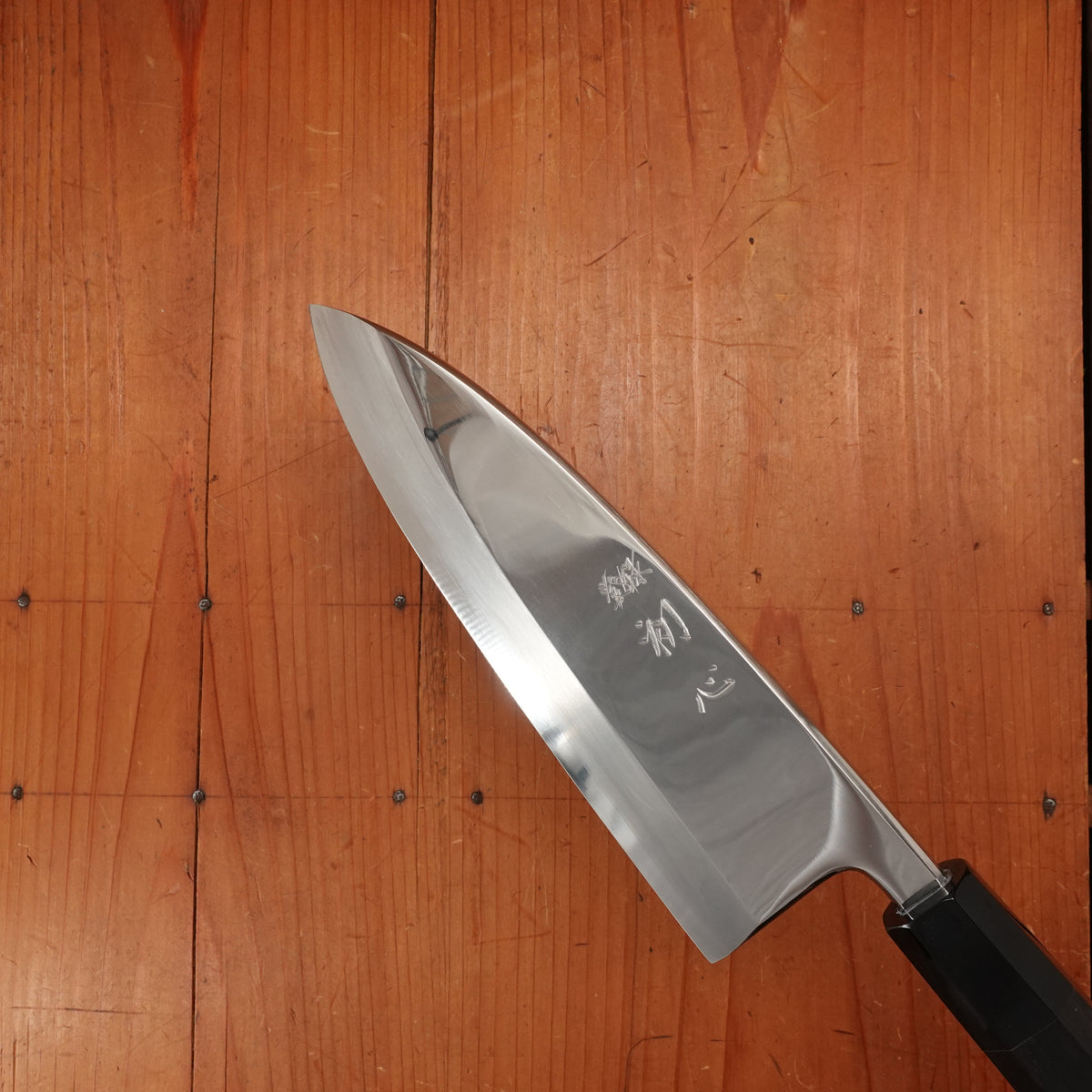
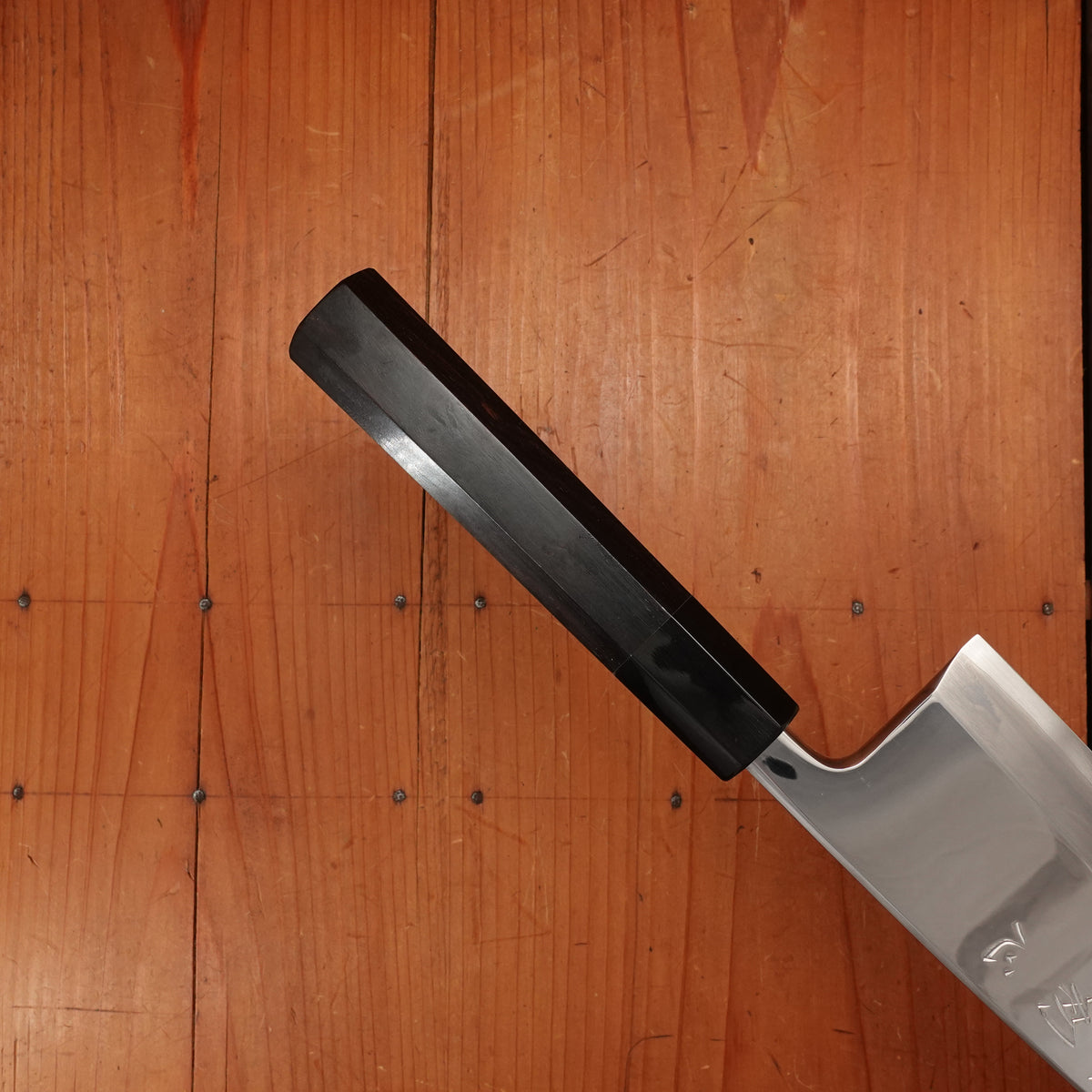
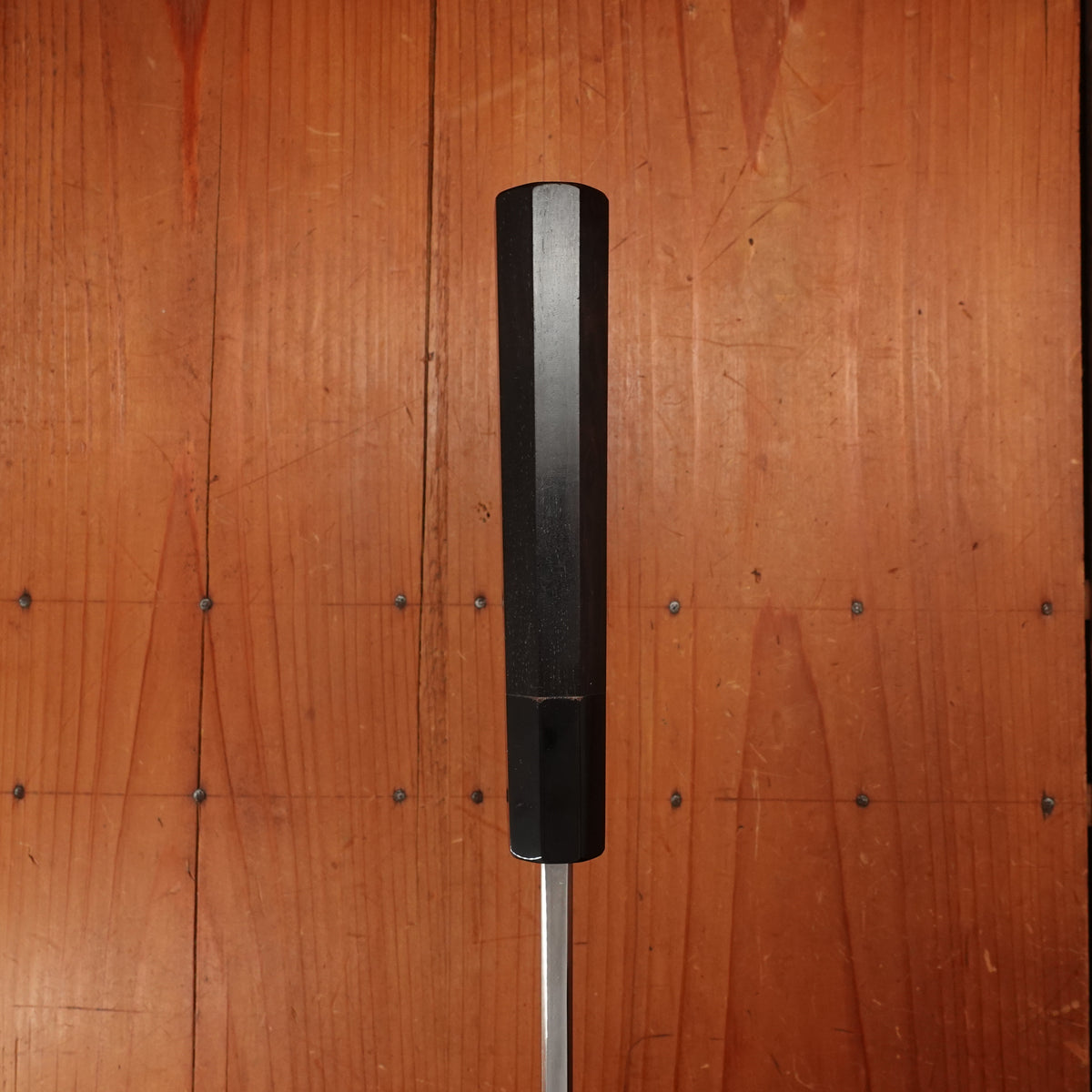
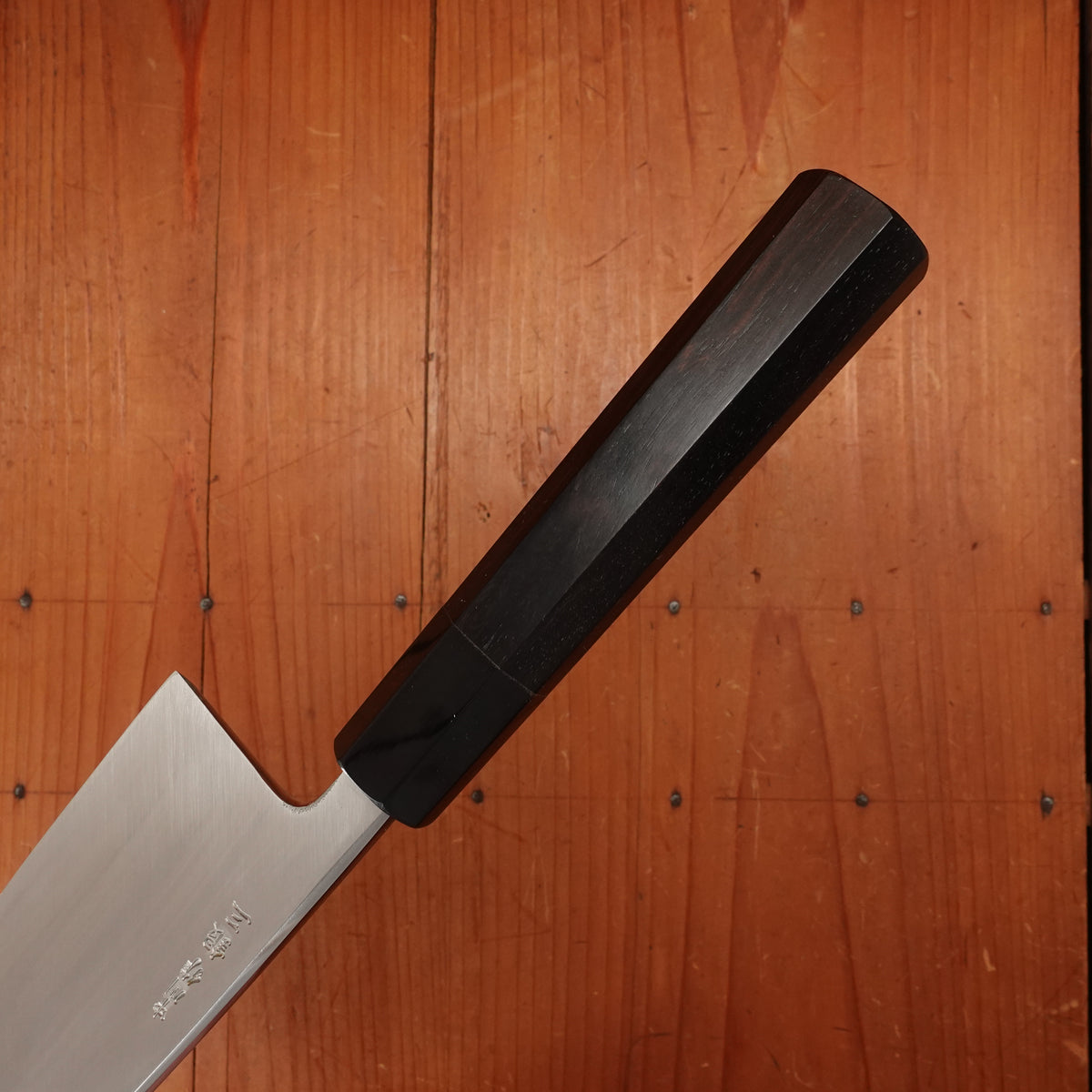
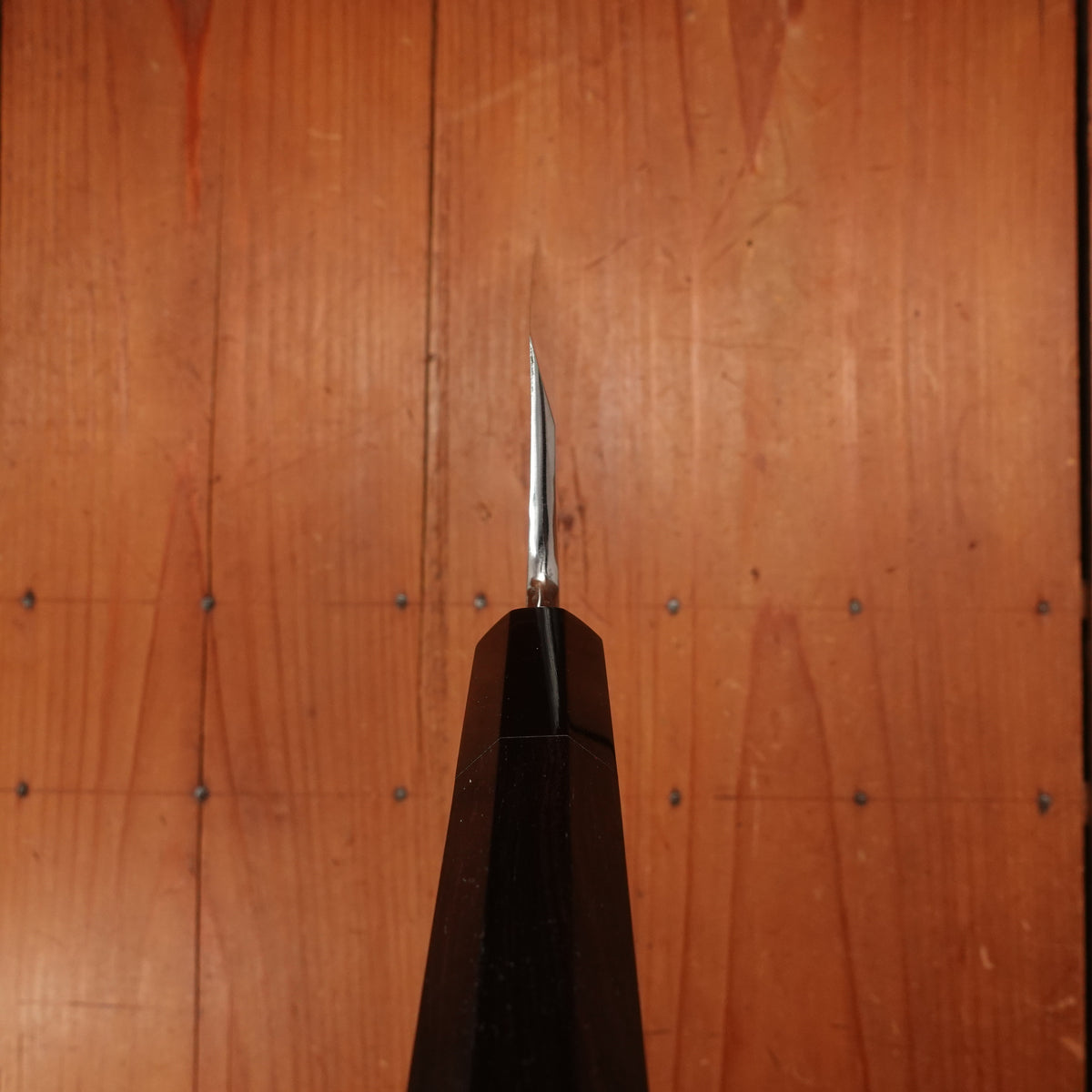
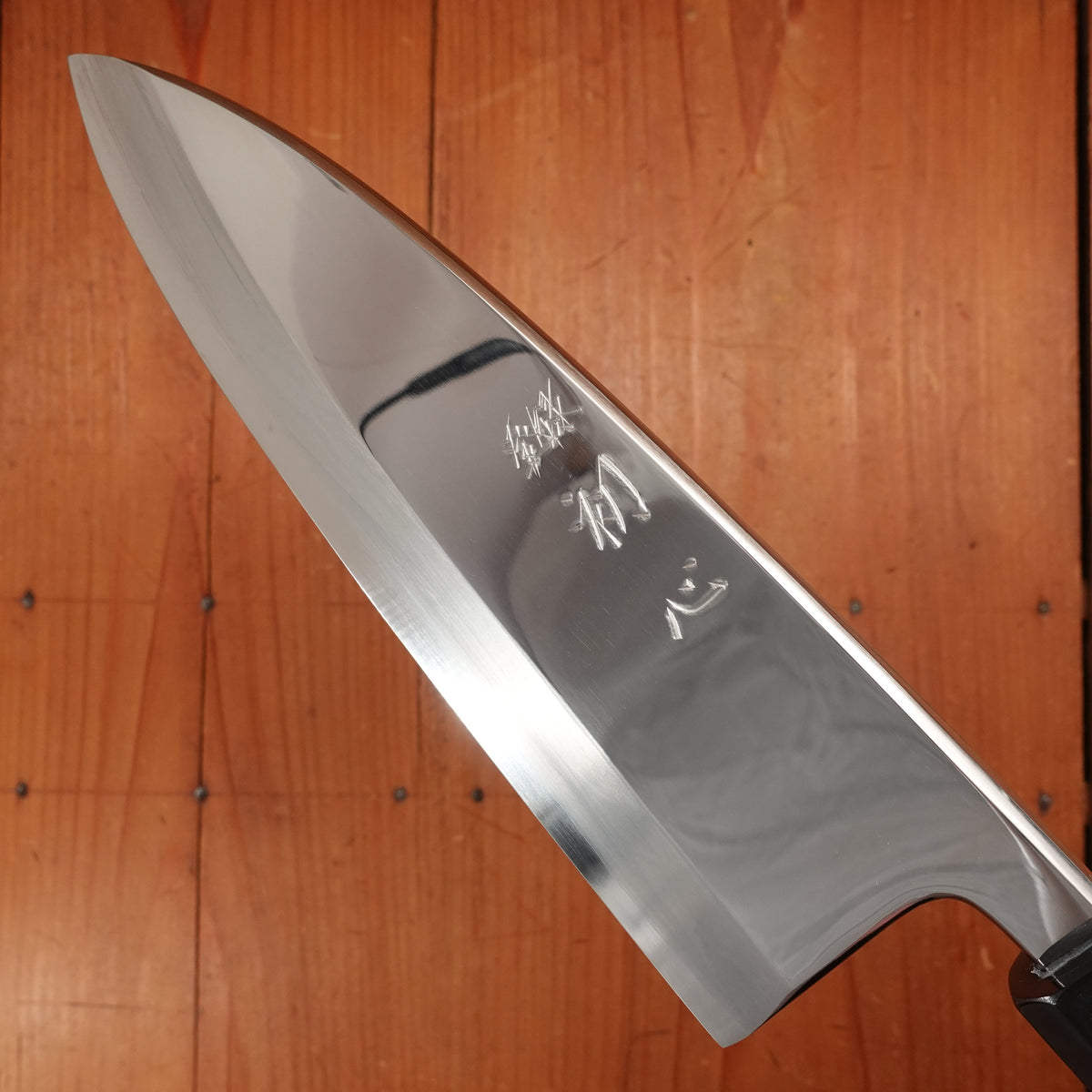
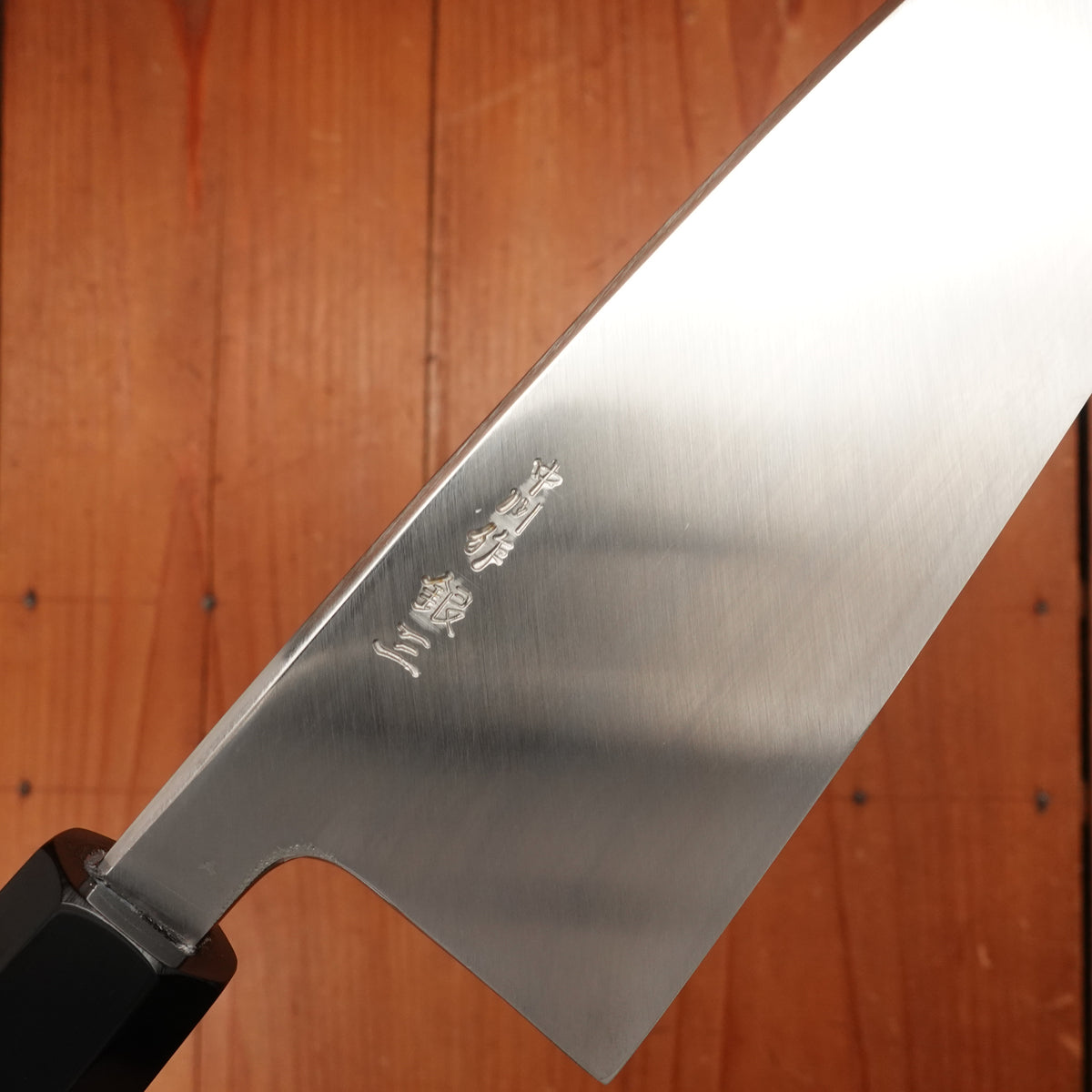
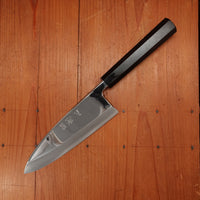
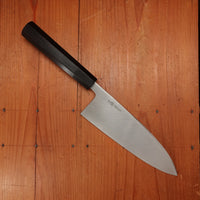
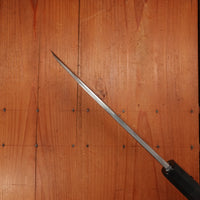
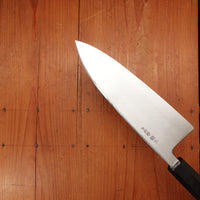
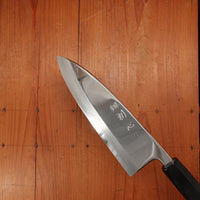
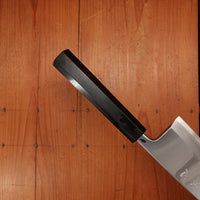
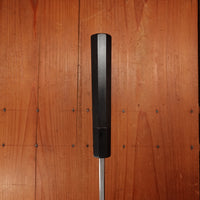
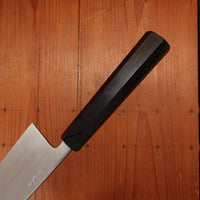
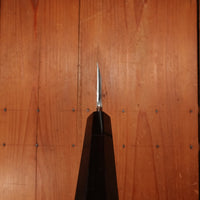
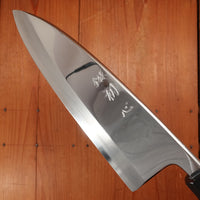
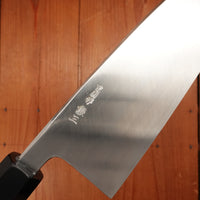
Hatsukokoro Nakagawa 180mm Deba Ginsanko Kyomen Ebony Black Buffalo Horn - LEFTY
-
Regular Price
-
$817.24
-
Sale Price
-
$817.24
-
Regular Price
-
Sale
Sold Out
-
Unit Price
- /per
- Regular Price
- $817.24
- Sale Price
- $817.24
- Regular Price
- Unit Price
- /per
Deba are intended for fish butchery. It is a heavy knife that is capable of fine and tough work but is not designed for other types of butchery and can chip on thick bones if used incorrectly.
Nakagawa-san's knives are characterized by excellent heat control during forging and a very thorough heat treatment creating knives that have superb edge formation and edge life with good toughness. His carbon steels are usually easy to sharpen across most steel types. Nakagawa-san's reputation as one of a few blacksmiths in Sakai to forge Ginsanko and VG10 stainless steels that results in excellent edge life and toughness is well earned.
The sharpener on this series is credited as Kawakita Hamono operated by Kazumi Kawakita. Kawaita-san is a famed master sharpener who lists many notable and well-respected Sakai sharpeners as former students. Notably Morihiro who pioneered putting traditional Sakai wide bevels on double bevel wa-hochos. He was the sole sharpener of the Konosuke Fujiyama line (until 2018) and also works on the Sakai Kikumori Choyo series as well as a credited grinder for Nakagawa and other projects from Sakai.
This knife will perform best at a lower finish polish, 3-4K being the best edge for fish butchery.
Brand: Hatsukokuro
Smith: Satoshi Nakagawa
Sharpener: Kawakita
Producing Area: Sakai, Osaka, Japan
Profile: Deba
Size: 180mm
Steel Type: Stainless
Steel: Ginsanko
Handle: Ebony Handle
Total Length: 343mm
Edge Length: 187mm
Handle to Tip Length: 206mm
Blade Height: 56mm
Thickness: 6.4mm
Handle Length: 138mm
Weight: 378grams
Hand Orientation: Left Handed
This is a stainless steel knife. It should be hand washed and towel dried. Habitual dishwasher use will result in degraded edge and handle. Consistent long term exposure to moisture can lead to oxidation.
Twisting, scraping and heavy use as well as use on hard and very dense objects can lead to edge damage. Using a quality wooden cutting board will keep a sharper edge for longer. Materials like glass, ceramic and bamboo should be avoided and will make the edge go dull quickly.
We recommend hand sharpening on whetstones. We have found that most Japanese knives perform best at a finer finish starting around 4000 grit. Avoid pull through sharpeners and non-water cooled mechanized sharpening. Ceramic honing rods are preferred.
Recently Viewed
About Bernal Cutlery
We are a full-service cutlery shop offering sharpening services, Japanese and Western culinary knives, vintage knives, outdoor, pocket and craft knives, cooking tools and accessories. We also offer knife skills and sharpening classes, and more.
We are proud to serve kitchen professionals, knife enthusiasts and home cooks alike. Located in the Mission District of San Francisco, California.
766 Valencia Street, SF, CA 94110
1 Ferry Building, Ste. 26, SF, CA 94110
